Engine Cost
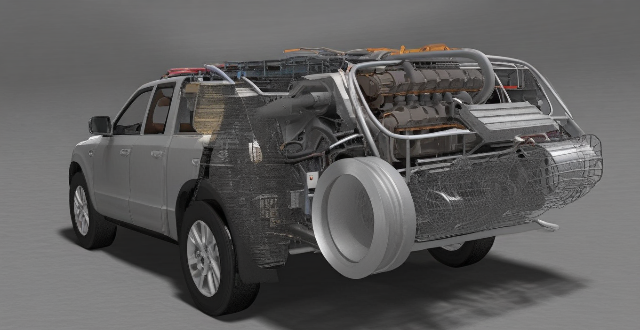
What are the main components of a fuel vehicle's engine ?
The main components of a fuel vehicle's engine include the cylinder block, pistons, connecting rods, crankshaft, camshaft, valves, head gasket, cylinder head, timing belt or chain, oil pump, spark plugs, intake and exhaust manifolds, cooling system, and lubrication system. These components work together to ensure efficient combustion, energy conversion, and overall engine operation.

What are the benefits of a gasoline hybrid engine ?
The article discusses the advantages of a gasoline hybrid engine, which is a combination of a traditional internal combustion engine and an electric motor. The benefits include improved fuel efficiency through reduced fuel consumption, regenerative braking, and start-stop technology; lower CO2 emissions and decreased pollutants resulting in cleaner air quality; and enhanced performance with instant torque, smooth driving experience, and extended brake life due to regenerative braking. Overall, gasoline hybrid engines provide a balance between power and efficiency, making them an attractive option for eco-conscious drivers.
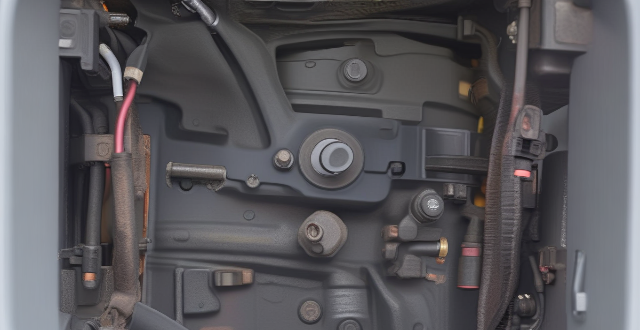
Can an electronic speed controller be used in a car engine ?
The question of whether an electronic speed controller (ESC) can be used in a car engine depends on the type of engine. In traditional internal combustion engines (ICE), which use gasoline or diesel as fuel, an ESC cannot be used because these engines rely on mechanical systems for speed control. However, in electric cars, which use electric motors as their primary source of propulsion, an ESC is essential for controlling the speed of the motor and protecting it from damage. Therefore, while an ESC cannot be used in ICE vehicles, it plays a crucial role in electric vehicles.

How do power batteries compare to traditional gasoline engines in terms of cost and efficiency ?
Power batteries and traditional gasoline engines are two different types of energy sources that are used to power vehicles. In this article, we will compare the cost and efficiency of power batteries and traditional gasoline engines. Power batteries have a higher initial cost than traditional gasoline engines, but require less maintenance and have lower fuel costs. They also have a higher energy conversion efficiency and can recharge through regenerative braking. However, they have a limited range compared to traditional gasoline engines. Traditional gasoline engines have a lower initial cost than power batteries, but require more maintenance and have higher fuel costs. They also have a lower energy conversion efficiency and cannot recharge through regenerative braking. However, they have a longer range than power batteries. Overall, while power batteries have a higher initial cost and limited range compared to traditional gasoline engines, they offer several advantages in terms of cost and efficiency. As technology continues to advance, it is likely that power batteries will become even more cost-effective and efficient compared to traditional gasoline engines.

How much does it cost to maintain an electric car ?
Maintaining an electric car is generally more affordable than maintaining a traditional gasoline-powered car. However, the cost can vary depending on several factors such as the make and model of the car, its age, and the specific services required. In this article, we will discuss the different costs associated with maintaining an electric car. The initial cost of purchasing an electric car may be higher than that of a conventional car due to the expensive battery technology. However, the long-term savings in fuel and maintenance costs often outweigh this initial expense. One significant cost associated with owning an electric car is the eventual replacement of the battery pack. The lifespan of an electric car's battery can range from 100,000 miles to 200,000 miles or more, depending on usage and charging habits. When the time comes for a replacement, it can be quite costly. The price varies widely based on the vehicle's make and model, but it typically ranges from $5,000 to $15,000. Electric cars have fewer moving parts than traditional cars, which means they require less maintenance over time. Tire rotation and replacement are necessary for both electric and gasoline-powered vehicles. The cost will depend on the type of tire you choose and your driving habits. Since regenerative braking systems are used in most electric cars, brake pads and rotors last longer than those in traditional cars. Therefore, brake service is less frequent and less expensive for electric cars. Electric cars do not require engine air filters like gasoline-powered cars since they don't have engines that burn fuel. This eliminates the need for regular filter changes and their associated costs. Electric cars do not have engines that require oil changes like gasoline-powered cars do. This eliminates the need for regular oil changes and their associated costs. Electric cars do not have cooling systems like traditional cars do since they don't produce exhaust heat from combustion engines. This eliminates the need for regular coolant system maintenance and its associated costs. There are also other costs associated with owning an electric car that should be considered: If you don't have access to a public charging station near your home or workplace, you may need to install a charging station at your residence or business location. The installation cost can vary widely based on several factors such as the type of station you choose and whether any electrical upgrades are needed. Electricity prices vary by region and provider, so it's essential to research local rates before purchasing an electric car. Additionally, if you plan to charge your car at home overnight when electricity rates are lower, you could save money on energy costs compared to charging during peak hours. In conclusion, while the initial cost of purchasing an electric car may be higher than that of a conventional car due to the expensive battery technology, the long-term savings in fuel and maintenance costs often outweigh this initial expense. Overall, maintaining an electric car is generally more affordable than maintaining a traditional gasoline-powered car due to fewer moving parts and less frequent maintenance requirements.

How long do diesel hybrid engines last ?
This article discusses the factors that affect the lifespan of diesel hybrid engines and provides an estimate of their expected lifespan. It also offers tips for maximizing the lifespan of these engines through proper maintenance, responsible driving habits, high-quality fuel, and protection against extreme temperatures.

What is the fuel efficiency of a hybrid car ?
Hybrid cars are more fuel-efficient than traditional gasoline-powered vehicles, with an average range of 40-50 mpg in city driving and 35-45 mpg on the highway. This increased efficiency offers benefits such as reduced fuel costs, lower emissions, longer engine life, and potential tax incentives. If you're looking for a more environmentally friendly and cost-effective way to get around, consider purchasing a hybrid car.

How much does fiber optic broadband cost ?
The cost of fiber optic broadband varies based on provider, location, speed, and additional fees. It is recommended to compare plans from different providers and consider all associated costs before making a decision.

How does the maintenance cost of fuel vehicles compare to that of electric cars ?
The text discusses the comparison of maintenance costs between fuel vehicles and electric cars. It mentions that fuel vehicles typically require regular maintenance such as oil changes, air filter replacements, and spark plug checks. On the other hand, electric cars generally require less frequent maintenance than fuel vehicles. They do not have traditional engine oil, so oil changes are not necessary. However, they still require regular checks on the battery, brakes, and suspension system. Fuel vehicles often require more frequent maintenance due to their complex internal combustion engines and various fluids that need to be changed regularly. This includes oil changes every few thousand miles, as well as other routine services like brake pad replacements and tire rotations. Electric cars typically require less frequent maintenance because they have simpler drivetrains with fewer moving parts. Battery health is an important aspect of electric car maintenance, but it generally does not require as many check-ups as a traditional engine would. The cost of parts and labor for fuel vehicles can vary widely depending on the make and model of the vehicle, as well as the specific services required. However, fuel vehicles often have more expensive repairs due to their complexity and the number of moving parts involved. While electric cars may initially have higher upfront costs for batteries and specialized components, their maintenance costs tend to be lower in the long run because they require less frequent servicing and have fewer parts that need replacing.

How much does a fitness instructor course cost ?
The cost of a fitness instructor course can vary depending on the type of certification, location, duration, and extra costs. It is important to research all potential costs before making a decision to ensure that the course fits both your budget and career goals.
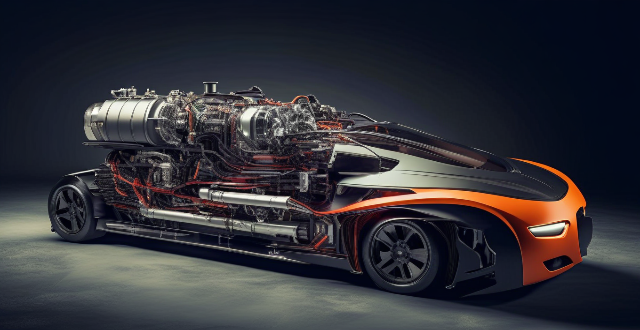
Can I still use gasoline in a gasoline hybrid car ?
Gasoline hybrid cars combine a traditional gasoline engine with an electric motor for improved fuel efficiency and reduced emissions. While they still require gasoline to operate the internal combustion engine, they offer significant savings in fuel costs over time. To maximize fuel efficiency in a gasoline hybrid car, drivers should practice eco-driving techniques, perform regular maintenance, and utilize regenerative braking settings. Gasoline hybrid cars represent a step towards reducing our reliance on fossil fuels and transitioning to cleaner energy sources.

How efficient is a Series Hybrid Electric Vehicle ?
Series hybrid electric vehicles (SHEVs) combine internal combustion engines and electric motors to power wheels, offering efficiency benefits through regenerative braking, engine optimization, and electric drive. However, added weight, system complexity, and battery depletion can be drawbacks. The efficiency of SHEVs hinges on design and driving habits.

Are all hybrid cars made equal or are some brands better than others ?
Hybrid cars vary in performance, reliability, and value across different brands. Brand A leads in engine efficiency, driving experience, acceleration, durability, maintenance costs, warranty, cost of ownership, resale value, and innovation. Brand B performs moderately well but lags behind Brand A in several areas. Brand C has the lowest ratings for most criteria, including durability, maintenance costs, warranty, cost of ownership, resale value, and innovation. Consumers should consider these factors when choosing a hybrid car to ensure they get the best value for their money.

How much more expensive is a gasoline hybrid car compared to a regular gasoline car ?
The cost difference between a gasoline hybrid car and a regular gasoline car can vary depending on several factors such as brand, model, features, and location. However, in general, gasoline hybrid cars tend to be more expensive than regular gasoline cars. Here are some key points to consider: - Gasoline Hybrid Cars: These vehicles typically have a higher initial cost compared to regular gasoline cars due to the additional technology required for the hybrid system. The price difference can range from a few thousand dollars to over $10,000, depending on the make and model. One of the main advantages of gasoline hybrid cars is their improved fuel efficiency. They use both gasoline and electricity to power the engine, which results in better mileage and lower fuel costs over time. While gasoline hybrid cars may have higher repair costs due to their complex systems, they often require less maintenance overall because the electric motor helps reduce wear and tear on the engine. As awareness of environmental issues grows, so does the demand for eco-friendly vehicles like gasoline hybrid cars. This increased demand can help maintain or even increase their resale value over time. - Regular Gasoline Cars: These vehicles are generally less expensive upfront as they do not require the same advanced technology as hybrid cars. These vehicles rely solely on gasoline for power, which can lead to higher fuel consumption and expenses, especially if you drive long distances or frequently idle in traffic. These vehicles may have lower repair costs initially but may require more frequent maintenance, such as oil changes and tune-ups, due to their reliance on a single power source. The resale value of regular gasoline cars may decline faster than that of hybrid cars, especially as more buyers seek out fuel-efficient options.
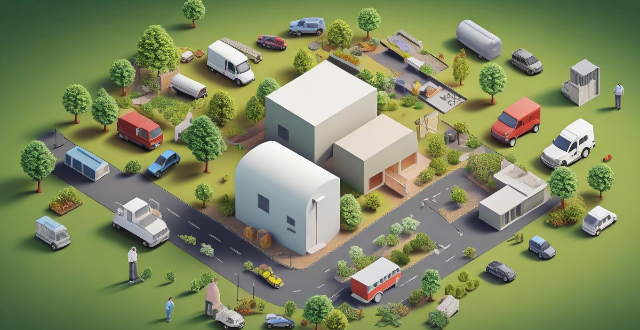
How much does it cost to upgrade my broadband service ?
Upgrading your broadband service's cost depends on the plan type, contract terms, installation fees, device rental or purchase, promotions and discounts, taxes and fees. To determine the most cost-effective upgrade, research different providers, assess your needs, contact your current provider, request a breakdown of fees, read the fine print, and finalize your decision.

What is the average cost of a cruise vacation ?
Cruise vacations offer a mix of relaxation and adventure, but the cost can vary. Factors like cruise length, destination, time of year, cabin type, onboard activities, alcohol, and gratuities affect the price. The average cost per person per day ranges from $50-$100 for budget lines, $150-$300 for mid-range, and $400-$1,000+ for luxury. Total costs for a 7-day cruise are $350-$700 for budget, $1,050-$2,100 for mid-range, and $2,800-$7,000+ for luxury. Tips for saving include booking early, traveling off-peak, choosing interior cabins, all-inclusive options, and looking for deals.

How much does sports insurance cost ?
The cost of sports insurance varies based on the type of sport, level of coverage, and individual's age and health status. High-risk sports typically have higher premiums than lower-risk activities. Basic policies may only cover medical expenses and lost wages due to injury, while more comprehensive plans may include additional benefits such as disability coverage and accidental death and dismemberment insurance. Younger athletes may have lower premiums than older ones, and individuals with pre-existing medical conditions or a history of injuries may face higher premiums. Tips for finding the best sports insurance policy include shopping around, considering bundling, and asking about discounts.
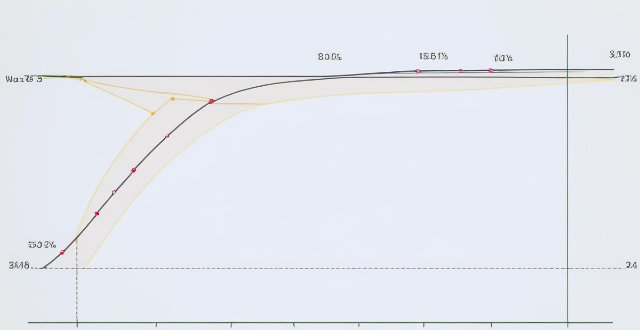
How much does an unlimited data plan usually cost ?
Unlimited data plans vary in cost from $60 to $105/month for one line, depending on the provider and included features. Factors affecting the final cost include the number of lines, device payment plans, taxes and fees, autopay discounts, and promotions. It's important to compare plans and consider any additional costs before choosing an unlimited data plan.
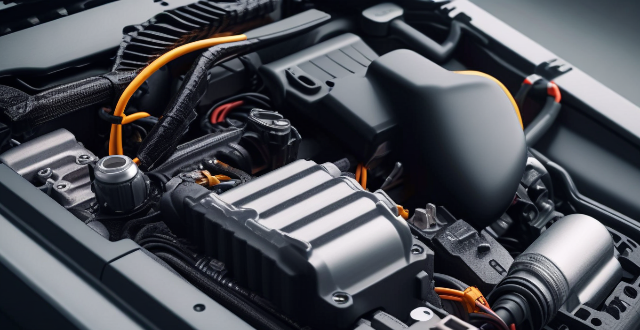
What are the key components of a CHEV's drive system ?
The key components of a CHEV's drive system include the engine, electric motor, transmission, battery pack, and energy management system. The engine generates the majority of the power needed to propel the vehicle, while the electric motor provides additional power during acceleration or hill climbing. The transmission transfers power from the engine and electric motor to the wheels, and may be a conventional automatic or manual transmission or a specialized hybrid transmission. The battery pack stores electrical energy generated by the electric motor during regenerative braking and provides power to the electric motor when needed. The energy management system controls the flow of energy between the engine, electric motor, and battery pack, determining when to use each source of power based on driving conditions, state of charge of the battery, and driver demand. These components work together to provide a seamless driving experience while maximizing fuel efficiency and reducing emissions.
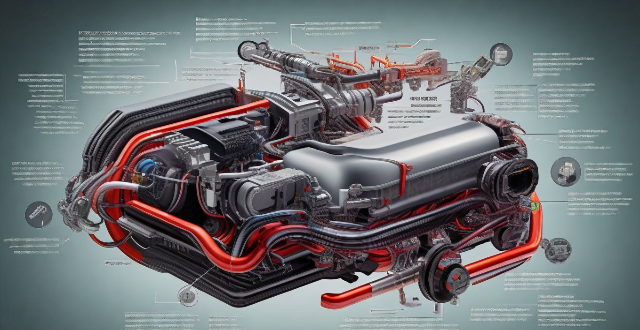
How do I install and maintain a combination motor drive system ?
A combination motor drive system, also known as an integrated drive system or hybrid drivetrain, is a complex assembly of components designed to deliver power from the engine to the wheels of a vehicle. It typically includes an internal combustion engine, one or more electric motors, and a transmission that may incorporate both mechanical and electronic control systems. This guide will walk you through the installation and maintenance process for such a system.

How much does it cost to travel to space ?
The cost of traveling to space varies depending on the type of mission, duration of stay, and provider. Suborbital flights are the most affordable option, while lunar and Mars missions are significantly more expensive. Factors such as training, technology, and risk contribute to the high costs. As technology advances and more companies enter the industry, the cost may decrease, but space travel is unlikely to become affordable for the average person in the near future.

How does age affect the cost of insurance ?
The article discusses how age affects the cost of insurance, with younger drivers typically paying higher premiums than older drivers. It highlights that health insurance costs can increase as people age due to increased risk factors and the need for more frequent medical care. Life insurance rates may also rise with age, while auto insurance rates may decrease for retired drivers who spend less time on the road. Homeowners insurance costs depend on the condition and value of the home, but older homes may require more maintenance and repairs. The article provides tips for managing insurance costs as you age, including reviewing coverage regularly, maintaining a good driving record, staying healthy, and considering long-term care insurance.

How much does the new iPhone model cost ?
The new iPhone model's cost is influenced by storage, color, and carrier. Prices range from $699 for the 128GB iPhone 13 Mini to $1,599 for the 1TB iPhone 13 Pro Max. These prices are for base models without extras, and taxes/shipping may apply.

How much does it cost to repair an iPhone screen ?
The cost to repair an iPhone screen varies based on the model, type of repair service, and location. Newer models are generally more expensive to repair than older ones. Official Apple Store repairs are the most costly but guarantee quality and authentic parts, while third-party shops offer more affordable options. Urban areas tend to have higher repair costs than rural areas. If your iPhone is under warranty or you have purchased additional protection plans, the cost may be covered or reduced. Consider all these factors before deciding on iPhone screen repair.